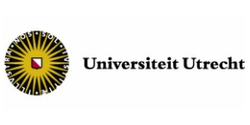PhD Position in Player-Centric Video Game AI
Updated: 06 Jan 2025
Are you excited about the use of contemporary AI in video game play and development? Do you want to study novel, enhanced player experiences or integrate cutting-edge approaches to open new avenues in games? Then this PhD is for you!
The Multimedia group at Utrecht University offers a four-year PhD position in Player-Centric Video Game AI. In contrast to well-established approaches of (scientific) AI in games, this denotes the central role of the player, as in elevating (novel) experiences, fostering skill acquisition, tailoring content, and player-driven analytics.
Your job
Practical applications of traditional AI have long found their way into industrial video game development (such as pathfinding, behaviour trees or churn prediction). Alongside these, academia has delved deep into AI and games for a number of different directions (e.g. game-playing AI, automated playtesting or generative AI for assets). Yet, the central role of the player (their needs, motivations, and the impact of AI technology on their experience) is less investigated, as it needs a valid environment, expertise in implementing AI, and expertise in human-computer interaction to draw proper conclusions. Some of our successful implementations and possible directions of player-centric AI can be found at the website of Nevermind Creations.
As a PhD candidate in this position, you will conduct independent, high-quality research resulting in a doctoral dissertation. Your research will focus on identifying gaps and opportunities in current trends of AI and game mechanics, implementing custom software that unites these fields (e.g. mods, plugins, or test-bed games), and evaluating this in ideally economically valid environments (player communities). You will collaborate with a team of well-versed academics of diverse skills, and can be embedded in industrial liaison projects if appropriate.
Requirements:
We are looking for an enthusiastic new colleague who meets several or all of the following criteria:
- a Master’s degree in Computer Science or related field, with the ability and willingness to learn new skills as required for the PhD project;
- demonstrable experience with common AI frameworks/libraries (e.g. PyTorch, scikit-learn, Keras) and the associated programming languages - experience with approaches of generative AI (local LLMs/visual generation) is an asset;
- demonstrable experience with contemporary game engines (e.g. Unreal, Unity, Godot) and/or modding existing games;
- a solid understanding of player experience, game mechanics, what makes play difficult, interesting, and unique;
- a strong interest, motivation and enthusiasm for independent as well as team-based scientific research (including collaborative development, evaluation and writing);
- experience and interest in working with data (e.g. cleaning, analysing, drawing conclusions, and transforming complex data for scientific insights as well as interactive application);
- excellent spoken and written English communication and interpersonal skills.
Salary Benefits:
- A position for four years;
- a gross monthly salary between €2,901 and €3,707 in the case of full-time employment (salary scale P under the Collective Labour Agreement for Dutch Universities (CAO NU));
- 8% holiday pay and 8.3% year-end bonus;
- a pension scheme, partially paid parental leave and flexible terms of employment based on the CAO NU.
In addition to the terms of employment laid down in the CAO NU, Utrecht University has a number of schemes and facilities of its own for employees. This includes schemes facilitating professional development, leave schemes and schemes for sports and cultural activities, as well as discounts on software and other IT products. We also offer access to additional employee benefits through our Terms of Employment Options Model. In this way, we encourage our employees to continue to invest in their growth. For more information, please visit Working at Utrecht University.
36 - 40 hours per week
Leuvenlaan 4

